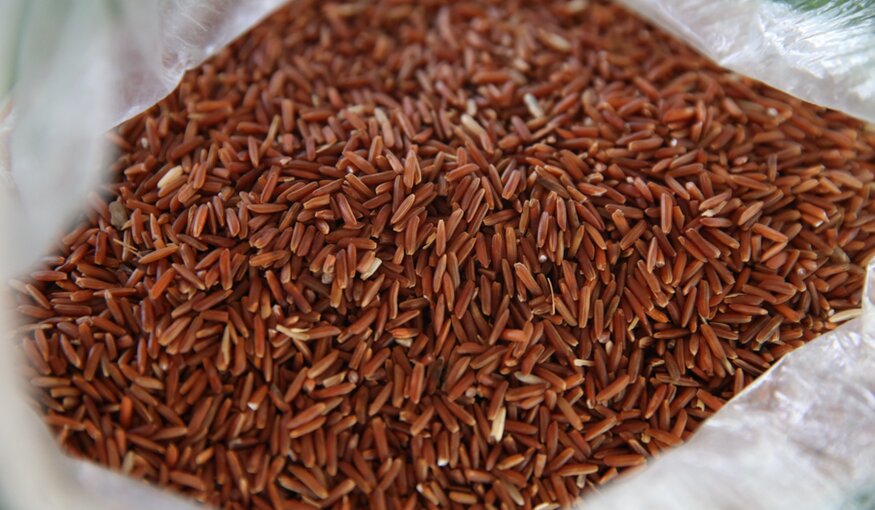A Little Wild in Our Rice
 Almost two-thirds of the world’s population depend on rice as part of their daily sustenance. In Vietnam’s Mekong Delta, rice is harvested two or three times a year, and 80% of the 17 million people who live there are engaged in rice cultivation. During a recent Crop Wild Relatives visit, Crop Trust, IRRI and NMBU representatives consumed it steamed, puffed, in flakes, as noodles, as wine, to mention just a few of the ways the Vietnamese enjoy this staple crop. Photo: L.M. Salazar
Almost two-thirds of the world’s population depend on rice as part of their daily sustenance. In Vietnam’s Mekong Delta, rice is harvested two or three times a year, and 80% of the 17 million people who live there are engaged in rice cultivation. During a recent Crop Wild Relatives visit, Crop Trust, IRRI and NMBU representatives consumed it steamed, puffed, in flakes, as noodles, as wine, to mention just a few of the ways the Vietnamese enjoy this staple crop. Photo: L.M. Salazar15 January 2020
Scientists are collaborating with farmers in Vietnam in a new project which is striving to develop improved varieties of rice which can withstand the challenges of climate change by tapping into the genetic diversity available in the hardy wild relatives of rice.
Vietnam is the third largest exporter of rice, after India and Thailand. But erratic climatic conditions are making it harder for farmers in the Mekong Delta to bring in a good harvest. Salinity, floods, pest, and drought are just some of the risks that are forcing farmers to increase their investment in inputs such as pesticides, fertilizers and reinforcement of irrigation systems. These measures consequently negatively impact both the environment and the farmers' already-low profits.
By adding a bit of wild into cultivated rice plants, farmers could have a proper and more sustainable solution for rice production. In so-called Seed Clubs, farmers are growing wild rice-derived lines on their farms and then select the most promising to be regrown in the coming season. The Seed Clubs are part of a participatory plant breeding project that started in late 2018 and depends on close collaboration between plant breeders and farmers. Because in the end, it's the farmers that chose what, or what not, to plant.
Read the full article .here
Category: Rice
